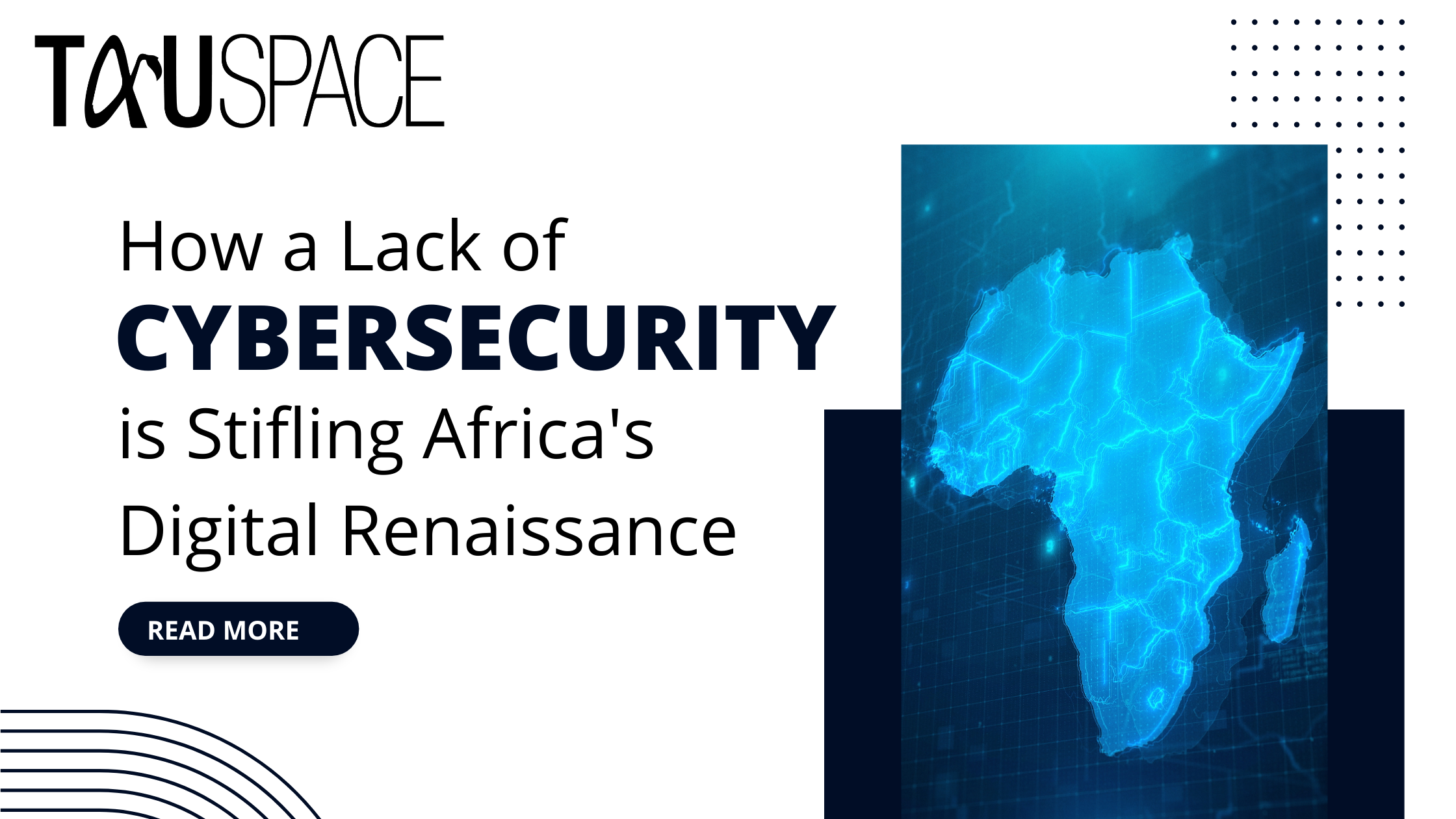Africa’s digital transformation is on the rise, with immense potential to reshape economies, improve livelihoods, and foster innovation. However, this promising future is marred by a persistent and growing threat – the lack of adequate cybersecurity measures. As the continent harnesses the power of technology, the absence of strong cybersecurity measures has become a roadblock to Africa’s digital growth.
Africa’s Digital Ascent
Over the past decade, Africa has witnessed a remarkable rise in digital adoption. Mobile technology, in particular, has played a pivotal role in extending digital services to the masses. With over 400 million mobile subscriptions in Sub-Saharan Africa [1] alone, the continent is increasingly connected. Mobile banking, e-commerce, telemedicine, and e-learning are all maturing, transforming the way Africans live, work, and interact with the world.
This digital leap offers opportunities for economic growth, job creation, and social development. However, it also exposes Africa to a new set of challenges, primarily in the form of cyber threats. Cybersecurity, or the lack thereof, stands as a significant hurdle in the path of sustainable digital progress.
The Growing Cyber Threat Landscape
The absence of effective cybersecurity measures leaves African individuals, businesses, and governments vulnerable to a host of cyber threats. Here’s how these threats impact Africa’s digital growth:
- Economic Impact: Cyberattacks come at a significant cost. Financial institutions, e-commerce platforms, and other businesses in Africa face financial losses due to data breaches, fraud, and downtime resulting from cyber incidents. These financial losses stifle innovation and limit resources available for digital infrastructure investment.
- Data Breaches and Privacy Concerns: African businesses often collect vast amounts of sensitive data, including personal information and financial records. Data breaches not only result in financial losses but also erode trust among consumers, discouraging them from engaging in digital transactions. Without trust, digital adoption slows.
- Intellectual Property Theft: The lack of adequate protection for intellectual property leaves innovators and content creators vulnerable to theft. This discourages innovation and creativity, as inventors may fear their ideas being stolen.
- Cyber Espionage and National Security: Government institutions and critical infrastructure are prime targets for cyber espionage. A breach in national security can have far-reaching implications, including diplomatic tensions, economic instability, and even military conflict.
- Ransomware Attacks: Ransomware attacks have debilitated healthcare institutions and municipalities across Africa. These attacks disrupt essential services, causing panic and economic losses.
The Impact on Digital Growth
Reports state that Africa is losing $4 billion annually to cybercrime [2]. During Q2 2022, cyberattacks saw a remarkable increase of 234% when compared to the previous quarter. These attacks encompassed various tactics, including phishing, scams, and social engineering, wherein users are enticed to visit a website and then deceived into divulging their personal information. So, how does this growing cyber threat landscape affect Africa’s digital growth?
- Hindrance to Digital Adoption: With the fear of cyberattacks, individuals and businesses may resist embracing digital solutions, hindering the adoption of digital services like online banking, e-commerce, and e-government initiatives.
- Reduced Foreign Investment: The lack of cybersecurity measures can discourage foreign investment. International businesses and investors are cautious about entering markets that are perceived as being vulnerable to cyber threats.
- Inhibiting Innovation: African startups and entrepreneurs often lack the resources and expertise to protect their digital assets. This leaves them exposed to intellectual property theft, stifling innovation and entrepreneurship.
- Economic Losses: The financial losses resulting from cyber incidents divert resources that could be invested in digital infrastructure, training, and other areas that promote digital growth.
Steps to Bridge the Gap
Addressing the cybersecurity gap is essential for Africa’s continued digital growth. Here are some steps that can be taken to bridge this gap:
- Invest in Cybersecurity Infrastructure: Governments, businesses, and individuals must invest in robust cybersecurity measures. This includes firewalls, intrusion detection systems, and encryption, among others. Adequate investment in cybersecurity infrastructure is critical to protect digital assets.
- Education and Training: Promote cybersecurity education and training. By building local expertise, Africa can develop a skilled workforce that can defend against and respond to cyber threats effectively.
- Collaboration: Governments, businesses, and civil society organizations should collaborate on cybersecurity initiatives. Public-private partnerships can help in sharing best practices, threat intelligence, and resources.
- Legislation and Regulation: Develop and enforce cybersecurity laws and regulations. These should include data protection laws, standards for securing critical infrastructure, and punitive measures for cybercriminals.
- International Cooperation: Africa should engage in international efforts to combat cyber threats. Sharing threat intelligence with other countries and participating in regional and international cybersecurity initiatives can help strengthen defenses.
- Awareness Campaigns: Raise public awareness about the importance of cybersecurity. Educate individuals about safe online practices and the risks of cyber threats.
- Support for Small Businesses and Startups: Provide support and resources for small businesses and startups to secure their digital assets. Incubators and accelerators can offer cybersecurity mentorship and funding.
- Innovation in Cybersecurity: Foster innovation in cybersecurity. Support local tech companies that are developing cybersecurity solutions tailored to the African context.
Conclusion
Africa’s digital growth is a remarkable story of progress and potential. However, to sustain this trajectory, addressing the cybersecurity gap is paramount. Cyber threats not only result in financial losses but also hinder digital adoption, discourage innovation, and jeopardise national security.
By investing in cybersecurity infrastructure, education, and collaboration, Africa can secure its digital future and unlock the full potential of its burgeoning digital economy. Bridging the cybersecurity gap is not only a matter of technological advancement; it’s an investment in Africa’s future prosperity and growth.
[1] https://www.statista.com/statistics/1133777/sub-saharan-africa-smartphone-subscriptions/ [2] https://techcabal.com/2022/12/16/digital-cyber-threats-in-africas-e-commerce-and-payment-sectors/









